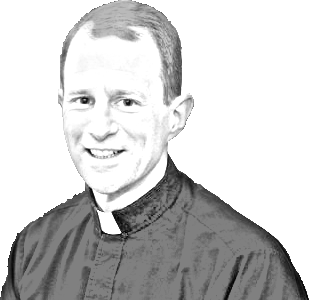Somehow it seems mightily appropriate that we celebrate Jesuit Heritage Week during these post-inauguration and post-march days, as our nation embarks on a transition of administrations that has thus far been unlike almost any other in its history. In the face of so much change, volatility, and uncertainty, our Jesuit heritage and mission gives us a deeply grounded foundation for living in this emerging reality and supporting one another, and it inspires us to commit ever more to the shared service of the common good.
Since we live it everyday, we may not appreciate just how radical, and countercultural, Jesuit education is. But at root, it stands in sharp distinction from many of the trends of our present day, and especially those that have been so present in the last few weeks.
First and foremost, the Jesuit worldview privileges listening. Indeed, the whole Jesuit approach is optimistic, premised on the basic idea that amazing things are occurring in the world, at each moment and in each person; our task is to look for them, listen for them, search for them. In religious terms, we say that God is present in all things, lingering just below the surface, and this means that we will be rewarded and inspired if we make the effort to quiet ourselves enough to listen — and listen deeply — to one another. The sacred is discovered not in shouting, or in rapid-fire internet postings, or in a basic posture of fear, but instead in patient, respectful, and even hopeful attention to the cares and concerns of those around us.
Last semester, I saw this kind of listening lived out here at Georgetown, in perhaps the most powerful experience I have ever had as an educator. On the first day back after the November elections, in a hush-quiet auditorium in Reiss, my students and I genuinely listened to one another. We took the time to slow down, to disconnect from our devices, and to write down our feelings and thoughts. And then we listened to each others’ questions and concerns, and we heard a massively wide set of experiences; one person captured this powerfully, “I realize that there are a whole set of experiences that I have not heard among my fellow students and citizens; I need to pay better attention.” Our Jesuit traditions push us to pay attention, even (and especially) when this is challenging.
But Jesuit education is more than feelings. It also encourages a deep engagement and study of the concrete realities of our world; it is empirically grounded and fact-based. From the very first days, Jesuits were fascinated with science and empirical enquiry. They mapped the craters of the moon and studied the paths of the stars, and they were eager to probe the details of history and contemporary affairs. They had no patience for lazy thinking or false assertions; indeed, they became known for their ability to dismantle faulty arguments. They loved grappling with complex issues in complex terms, appreciating the need for nuance, caution, and precision in their use of language.
Today we live that legacy when we move beyond strident assertions or sound bites, and instead seek — in every context, from our classes to our casual conversations — to understand the world in all its complexity.
Third, Jesuit education brings with it a set of deep moral and ethical commitments. The most important of these is an absolute and unflinching stance for the dignity and value of every human person and every member of our community. It is this conviction that led the presidents of Jesuit universities to issue a statement in November, asserting their commitment, in this present moment, to “labor for solidarity among all people, and especially with and for the poor and marginalized of our society … [and] to embrace the entire human family, regardless of their immigration status or religious allegiance.” This lives on as we seek to be bridge builders, promoting inclusion, acceptance, and reconciliation, even in the face of voices that sow division and discord by questioning who “belongs.”
Finally, Jesuit education vibrates with a restless orientation toward action. Jesuits were among the first religious orders to live and work outside of monasteries, choosing to enter daily into the messy fray of political and religious controversies. Looking at the needs of their time, they felt impelled to be activists, and they were willing to be on the front lines and to get their hands dirty. Sometimes they did this in quiet ways, in direct service and accompaniment, and at other times they were so outspoken and public that they drew the ire of those in power. Today, we live this out in our Jesuit education when we take to the streets on pressing issues, and when we pour ourselves into internships and advocacy, boldly speaking up and putting our time and energy behind our convictions.
Jesuit education could not be more important today. With profound, respectful listening, and a willingness to grapple with the hard (and verifiable) facts; with a deep moral commitment to human dignity and inclusion, and an edgy, undeniable impulse toward action, we stand ready, poised to call ourselves — and our nation — to live up to our ideals and promise.
Fr. Matthew Carnes, S.J., is an associate professor of government and the director of the Center for Latin American Studies. AS THIS JESUIT SEES IT appears every other Friday.




















